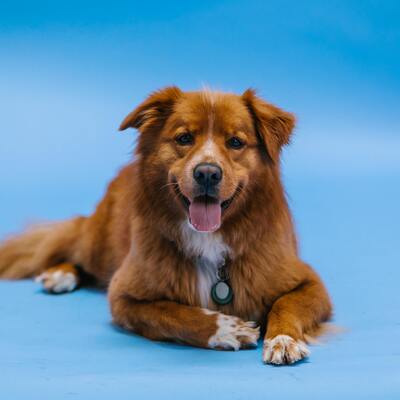They say that a dog is man’s best friend, which is why we need to pay particular attention to our pooches and other pets as lockdown restrictions ease and we gradually return to the workplace.
This is never more relevant than during April’s National Pet Month, which aims to celebrate and raise awareness of responsible pet ownership through educational campaigns and resources.
The pandemic has forced many businesses to shift operations to remote working, meaning employees will have changed the routine which they share with their pets. As a result, pets will have become more accustomed to spending longer periods of time with their owner, most likely indulging in extra walks, play time and other social interactions, alongside altered feeding schedules.
There is also little doubtthat they will have thoroughly enjoyed the increased love and attention they have been receivingand will miss it when we return to a more “normal” schedule.
While we might understand that it’s back to business as usual in the not too distant future, we can’t expect the animals in our lives to comprehend what on Earth’s going on. So, we have put together all the tips you need to ease your pet into a post-Covid way of life when you do eventually go back to work.
Devise a new schedule
Your pet’s walks or mealtimes might have shifted because you have been at home more. To gradually ease your pet back into your pre-Covid routine, create a schedule which more closely resembles your previous usual work day. This should incorporate times for feeding, playing, grooming and taking walks. Then, try to resist the urge to play with your pet, feed them or take them on a walk outside of this schedule, so your buddy can start getting used to the fact that you won’t always be there.
Prepare for the absence
Pets will need to get used to spending more time alone, so leave the house more frequently and increase the duration each time. Do this even if you’re going to a place where you would normally bring your dog, such as to the park. This will help your pet get accustomed to the idea of you being away, while being safe in the knowledge that you will return.
Adjust your habits
Your pet has the ability to learn and recognise details in your daily routine. If you normally wear certain clothes for work, carry a particular bag or give them a special treat before you leave, begin reinstating these habits as much as possible.
Encourage familiarity
Make sure that your pet is left in a safe and familiar space and never lock them somewhere which is new or unknown to them. That safe space might be a crate, although not all pets like being contained in this way.
If they do normally spend their time in a crate or behind a pet gate while you goto work, you may want to consider having them take their naps there again. This is again so that they can get used to your prolonged absence.
Use the ‘stay’ command
It’s possible to reduce the chances of your pet feeling anxious by teaching them to stay. You will know that they have managed to understand the concept when you can leave the room and they stay sitting quietly, even if you’re in another room all together and they are alone.
Build on durations of time left alone
Start off small by leaving your pet alone for one hour at a time and build it up by the hour. This could be in a crate, a room or a designated area of the house. Start to develop a routine that they can get used to, so when you actually do leave to go back to workit’s not going to be such a shock to their system.
Take a different approach to meal times
Feed your pet in another room or outside and away from you. This will help them to learn that being separated from you can offer up an enjoyable experience or part of the day which they genuinely look forward to.
Embrace positive reinforcement
If bad behaviours do start to emerge as a result of any changes to the day, use positive reinforcement as a way to make the routine work for all of you. Puzzle toys which are designed to keep pets mentally preoccupied and stimulated while you are gone are always worth a try.
For more advice about how to prepare you, your family and your pets for the return to work post-Covid, please get in touch with our team: info@merje.com.







